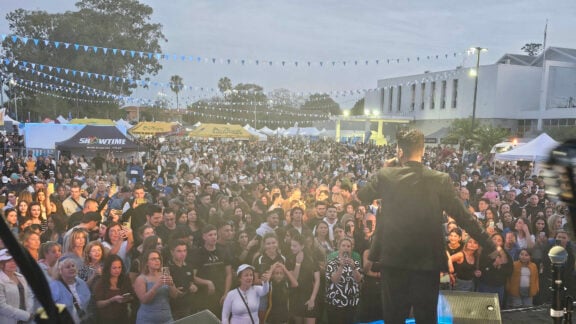John Vasilakakos took a long time to come to terms with Australia.
In Greece I was derided as ‘the Australian.’ They had no respect, nor do they, for Australian Greek writers. I think I am one of the very few Greek Australian writers writing in Greek to be published in Greece.
– John Vasilakakos –
The trauma of migration was also weighed down by inexorable depression, something more than just nostalgia, or that virtually untranslatable word that only Greek Diaspora can understand, “xenitia”.
Arriving in Australia from Greece in 1965, at an awkward teenage of 14 with his parents, caused him unfathomable sadness and dislocation.
“My father could see no future for us in Greece, it was a difficult period for Greece politically and socially…” he stops mid – sentence to choke back that sadness, “…it was a traumatic experience for me, I have only recently recovered from that experience. I came to terms with the fact that I am a child of the Diaspora.”
Conversely, he openly acknowledges, “I am deeply grateful to Australia, even though I never wanted to leave Greece and the process (of departure) wounded me, (yet) it is here that I found my path.”
More than a mere path, Vasilakakos became an accomplished writer, playwright and literary translator.
He recently completed the translation into Greek of Patrick White’s 1980 autobiography Flaws in the Glass and penned a best selling biography on one of Greece’s earliest openly gay writers, the late Costas Tachtsis.
Costas Tachtsis great novel The Third Wedding won international acclaim, depicting the harsh realities of life experienced by Greece’s lower classes before, during, and after World War II.
Tachtsis was found naked, fatally strangled in his home in 1988. Vasilakakos’ Greek languageTachtsis biography will soon be available in English.
Vasilakakos is aware of Tachtsis’ impact on the sexual and literary discourse of modern Greece, particularly at a time when being openly gay in a right wing Greece was dangerous, “He is an extraordinary writer” says Vasilakakos of Tachtsis, “he was in prison as a transvestite in the 1960s, he was a male prostitute and yet also became one the greatest post – war Greek writers.”
Vasilikakos’ biography of Tachtsis is now being touted as one of the best ever written illuminations of an artist’s life, work and times.
The biographer has been invited to launch his eagerly-anticipated opus in Thessaloniki’s International Book Fair and at the auspicious Frankfurt’s International Book Fair.
Vasilikakos shares something with the subject of the biography; he knows the feeling of being on the outside, “I remember after nine years in Australia in my 20s, I said to my parents ‘If I don’t go back to Greece, I will kill myself, so in 1974 my poor parents sold eveything and we went back to Greece.”
In the same year, his politically charged The shipwreck of the S.O.S. was noticed by a Greek publisher but as he says,
“The Junta was their publisher (and) said I should censor myself, but I refused.” Soon after the Junta fell, but Vasilakakos still the outsider, Australia now assisting him in the process of metamorphosing into his other self, embedding itself into his psyche.
“In Greece I was derided as ‘the Australian’…. they had no respect, nor do they, for Australian Greek writers. I think I am one of the very few Greek Australian writers writing in Greek to be published in Greece in Greece.”
Vasilakakos’ books have now been translated into English, Italian and Mandarin, and some are now being translated into Arabic and Bulgarian.
He is by his own admission, “one of the few lucky writers to have received support from the Australia Council for the Arts to write in Greek, I can never write in English I just can’t express myself the same way – writing comes from the soul.”
His best known works like The Set Up, about the scandalous way the Greek community were accused as ‘welfare cheats’ by the Federal Police in the 1970s or his play The Identity, are now part of the secondary schools’ curriculum in Australia and Greece. Indeed, postgraduate students are conducting master degrees and doctorates on them.
For all the memories and the sadness endured of belonging to the Greek Diaspora, John Vasilakakos has to admit, “If I never landed here I may not have become who I am now, I owe much to Australia even though my relationship to this land was always problematic.”









